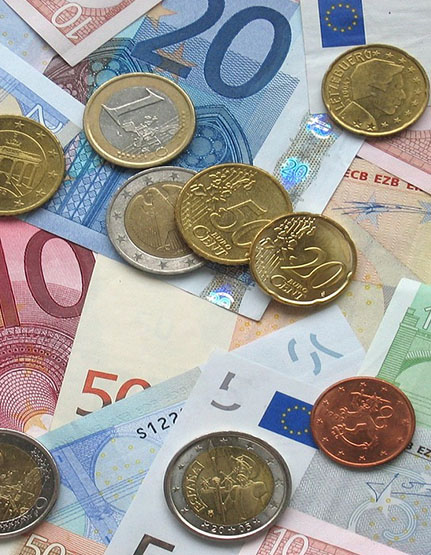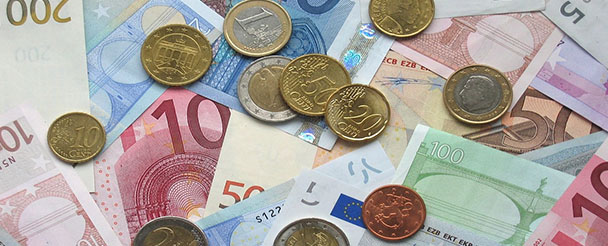
The two types of
procedures for a debt
collection in France
Two types of procedures can be introduced in France in order that a creditor recovers a debt. In both procedures, an enforceable title (“titre exécutoire”), that is to say a judgment from a French court, will be necessary.
If the creditor does not have any judgment against a French debtor who owes him money, he has to sue him before the French Commercial court which has jurisdiction on the case. The creditor will enforce the judgment that will be granted by the Commercial court against the debtor.
Sometimes, the creditor has a judgment that has been granted by a court of his country against the French debtor. In this case, debt recovery in France will be implemented by the procedure of exequatur : the foreign judgment will be enforced in France with a judgment from the Court of first degree (“Tribunal de Grande Instance”).
In these two procedures of debt collection in France, conservatory seizures will be important in order to freeze the debtor’s assets until the French judgment is rendered.
The two types of
procedures for a debt
collection in France

Two types of procedures can be introduced in France in order that a creditor recovers a debt. In both procedures, an enforceable title (“titre exécutoire”), that is to say a judgment from a French court, will be necessary.
If the creditor does not have any judgment against a French debtor who owes him money, he has to sue him before the French Commercial court which has jurisdiction on the case. The creditor will enforce the judgment that will be granted by the Commercial court against the debtor.
Sometimes, the creditor has a judgment that has been granted by a court of his country against the French debtor. In this case, debt recovery in France will be implemented by the procedure of exequatur : the foreign judgment will be enforced in France with a judgment from the Court of first degree (“Tribunal de Grande Instance”).
In these two procedures of debt collection in France, conservatory seizures will be important in order to freeze the debtor’s assets until the French judgment is rendered.
The steps of the procedures of
debt collection in France
The enforcement in France of a foreign judgment : a necessary procedure for the debt collection in France
The legal procedure for the enforcement of a foreign judgment in France depends on the country in which this one was rendered.
It is necessary to know if an international agreement, precisely an agreement of judicial cooperation in civil matters, exists or not between France and the country in which the judgment was delivered. This will allow the creditor to determine how to proceed to a debt recovery in France.
France signed, mainly between 1960’s and 1980’s, a number of agreements of judicial cooperation in civil matters, ruling the conditions in which a foreign judgment can receive the exequatur on the French territory.
These agreements applicable to the exequatur of a debt fixed by a foreign judgment were ratified with a large number of African countries such as Algeria, Morocco, Tunisia, Cameroon, Ivory Coast, Mali or Senegal, and also with Latin American countries (ex: Brazil) and of Asia (ex: China and Vietnam).
If they enumerate relatively similar conditions for the exequatur, however, each bilateral agreement has its particularity in terms of, inter alia, the type of procedure before the court (action in the form of referrals, which should be distinguished very carefully, see for example: Cass. Civ. 1re, 22 March 2017, No. 16-11304) or of maintaining the verification of the applicable law as a condition of the exequatur (this has disappeared from common law of exequatur but is still in force in certain conventions).
When France has not ratified an international convention with the country in which the judgment of debt was rendered, the conditions of enforcement are defined by Article 509 of the Code of Civil Procedure, which in practice implies the application of the Court of Cassation’s case law as decided in the Cornelissen case on 20 February 2007.
This legal regime is, for example, applied to decide of the exequatur of judgments rendered in the United States or Japan, in the absence of a convention signed with these countries. Therefore, in order to proceed to a debt recovery in France with a judgment rendered in the United States or in Japan, this kind of legal procedure will be used.
The applicant to the exequatur shall demonstrate that the following three conditions, decided in the Cornelissen case, are satisfied : the jurisdiction of the foreign court with regard to the French rules of private international law, compliance with the international public order of substance and procedure and the absence of fraud.
When the French civil court of first degree renders the judgment of exequatur, the creditor is able to proceed to the debt recovery in France against his debtor’s goods and assets.
Why hiring a lawyer for a debt collection in France ?
If you use the services of a French lawyer in order to proceed to your debt recovery in France, you will have a direct and personal link with a qualified professional of law who can deal with all its aspects and who, in a way or another, will have to represent you in your case.
The French lawyer can assist, advice and represent you in all the steps of the debt recovery in France : the dunning letter to pay the debt (“mise en demeure”), which generally has a strong psychological effect when sent by a lawyer, the summons and complaint (“assignation”) before the French court if the debtor refuses to pay, your representation before the French court in order to obtain a judgment and the enforcement in France of the judgment which has been obtained in your favor.
Another advantage to use the services of a French lawyer is that you pay only one percentage on the debt that will be collected, instead of two percentages if you hire a debt recovery agency who soon or late will hire the French lawyer for you in a disputed claim.
The powers of debt recovery agencies in France are actually limited to the amicable requests of payment. As soon as the amicable debt recovery in France will be refused by the debtor, and considering the French law rule of the monopoly of French lawyers for the representation of a party before courts, the lawyer will have to intervene for your debt collection in France.

Me MOTTE-SURANITI’s firm experience for the debt collection in France
Debt collection in France constitutes one of the main activities of Me MOTTE-SURANITI’s law firm, a 11 years experienced lawyer in Paris who is fluently English-speaking and working.
Our firm has developed a practice that serves a clientele of small and medium-sized foreign businesses, allowing them to be paid of the money owed by their debtors.
The firm has a network of experienced actors in this type of cases : a competent and effective bailiffs firm for the practice of seizures, a discreet and rapid private investigator for the identification of the assets owned in France by the debtor : real estate, properties, bank accounts, movables and debt due to him by his own debtor.
Do you wish to proceed to
a debt collection in France ?
Do you wish to proceed to
a debt collection in France ?





